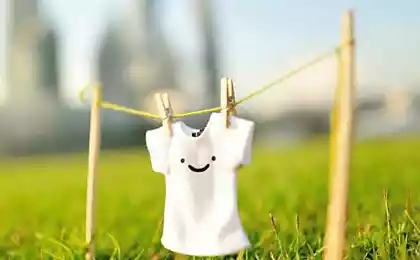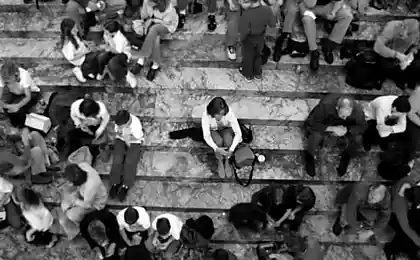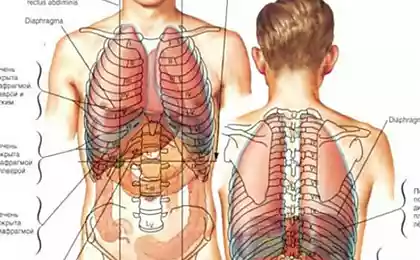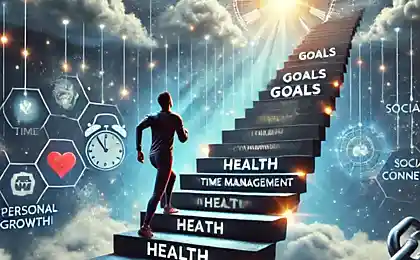597
Self-pity - one of the most dangerous emotion
The site publishes an article by Mark Hill, columnist Cracked, where the author is in a tough and ironic manner the dangerous emotion that many of us often poisons you zhizn.S happens that you feel incredibly depressed from scratch? I'm not talking about depression. I'm talking about the everyday self-pity, occurs because you did not get a desired job, did not descend on the long-awaited date or not brought myself Bengal tiger.
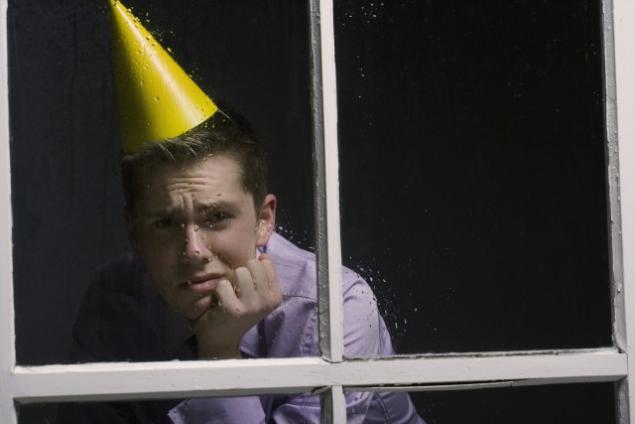
I learned that excessive self-pity leads to terrible consequences in the long term. I also learned that it can create a dangerous sense of comfort in the short term for you.
1. Self-pity is building a wall between you and the failure h2> Evaluate the difference between disaster arising because of the actual disease, and misfortune that you create for yourself. As far as I'm concerned, the difference is that the self-pity gives reason not to begin to act on their own, while the depression - does not allow you to act on their own, even if you want
2. You justify your anger, comparing yourself with successful people h2> The powerful rush of self-pity can cause a situation where you are looking at someone (especially if that someone younger than you) and complains that his career best your better house, better collection of plastic superheroes and so on. Many of this situation motivates them to achieve, to make himself better. And other people can use it to create a yet another excuse.
3. Self-pity makes you feel special h2> If self-pity only made people unhappy, she would not have its inherent charm. You have convinced yourself that other people all the time, healthy and happy. More you have convinced yourself that unhappy no fault of their own. Thus, you create a story in which your voluntary suffering noble and are not at all the result of your ignorance.
4. It can become habitual routine h2> At the moment, some of you will probably say, "Well, of course I'm sorry yourself! Last month, I lost my job, my wife left me, my dog died. My life - sucks, and all that remains for me to - to get drunk, to somehow console yourself »

I learned that excessive self-pity leads to terrible consequences in the long term. I also learned that it can create a dangerous sense of comfort in the short term for you.
1. Self-pity is building a wall between you and the failure h2> Evaluate the difference between disaster arising because of the actual disease, and misfortune that you create for yourself. As far as I'm concerned, the difference is that the self-pity gives reason not to begin to act on their own, while the depression - does not allow you to act on their own, even if you want
.
And you've probably heard all the excuses: "I want to write a book, but I'm not too good to express their thoughts," "I want to go out on a date, but I'm not too attractive." It is always easier to assume that you are incompetent in something than to make a real effort and find that your worst fears about your abilities really true.
But all this is beyond incompetence or laziness. Many of those wishing to go on a date probably know someone who is even less attractive than they are, but it is regularly engaged in sex.
This is not about to give himself an excuse for inaction, and that to find yourself some excuse not to even try to act.
If you tried to do something and fail, it is understandable that you will be disappointed, but when you convince yourself that you can not do it, then just miss this opportunity.
But as for meetings, then there always is a chance. Yes, you can a few times to be refused, but eventually get what they wanted.
We tend to resort to various tricks that hinder our growth, and one of them looks like this: first, you find a reason not to try, and then start to worry that you do not have a result that could have been like if one day you do not regret it yourself and still tried. Deep down, you know very well that the chance you have, but refuses to admit it. < It corrodes you as a real disease.
2. You justify your anger, comparing yourself with successful people h2> The powerful rush of self-pity can cause a situation where you are looking at someone (especially if that someone younger than you) and complains that his career best your better house, better collection of plastic superheroes and so on. Many of this situation motivates them to achieve, to make himself better. And other people can use it to create a yet another excuse.
If you envy the work of his friend, and will tell you that because of the constant overtime guy is always one, you immediately fixated on the second other, whose work is better and which is often a good time. < Are you happy only when unhappy After you have found a suitable, most painful comparison, you can begin to make excuses:.
"No matter how much I work, Jeff will always be more money. So why bother to start »?
"I learned to play the theremin months, and the result is still zero, and Susan learned a couple of days! Whether it is worth to do it »?
All these unfavorable comparisons you need only to shirk the hard work that you could very well done, but not done.
You purposefully concentrate on you uncontrollable merits of other people that put you at a disadvantage: Jeff was a boy with a trust fund, and received a free ticket to Harvard, while you have to clean the taps to smuggle themselves into a regular college. But you persistently ignore variables that may well explain: Jeff, after the end of the Harvard worked hard for 80 hours a week, and you are at the moment is just beginning to gather a collection of beer cans. In this case you even does not occur, that the vagaries of life can sometimes compensate for hard work.
3. Self-pity makes you feel special h2> If self-pity only made people unhappy, she would not have its inherent charm. You have convinced yourself that other people all the time, healthy and happy. More you have convinced yourself that unhappy no fault of their own. Thus, you create a story in which your voluntary suffering noble and are not at all the result of your ignorance.
Everyone wants to feel special, because the alternative to this view assumes that you are an ordinary person, the same as the billions of others who conducts the short meaningless existence, and then die and be forgotten forever.
Career, family, work - all of which can at some point to give your life great meaning and for a time overshadow thoughts of the inevitable all-consuming void
.
And if you have a lot of experience dealing with people, you will never be discussing this topic, because none of you want to hear in response is something like: "Do you think only you have a problem? < Yes, your life is good, stop complaining »!
4. It can become habitual routine h2> At the moment, some of you will probably say, "Well, of course I'm sorry yourself! Last month, I lost my job, my wife left me, my dog died. My life - sucks, and all that remains for me to - to get drunk, to somehow console yourself »
.
If you face difficult circumstances, there is self-pity is not only quite clear, but it can be an important part of the healing process.
< If you use the self-pity as a crutch in the face of serious problems, you may notice that your motivation in this rapidly disappears.
The problem is that using self-pity so, you run the risk of falling into a rut from which it will be difficult to get out without help. Self-pity as unreliable as a pet dog that can tear you in one day neprekrasny.
Suffering involves routine: the same feelings, the same bad habits every day. And if you do not try to improve their lives, you will not have to deal with failure, fear of failure, or other frightening emotions. You do not have to look for the application, to count their own shortcomings, and you do not need to fairly evaluate other people.
< Happiness, who would not say that there is - it is difficult to
.
via www.cracked.com/blog/4-reasons-misery-shockingly-addictive/
5 facts about the mysterious and beautiful city at the bottom of the lake in China
8 facts about cars, created to order a single copy





